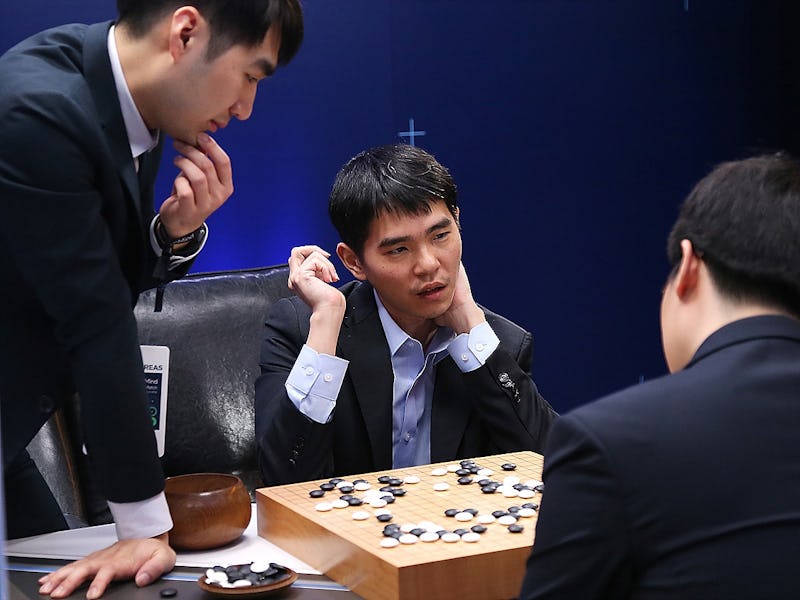It's OK That Humanity Lost the Game of Go to Computers
The victory of Google's DeepMind is also victory for the living.

The fifth and final game of the Go slugfest between Google’s DeepMind program AlphaGo and Korean champ Lee Sedol airs tonight at 11 p.m. Eastern Time. And it’s been a bruising ride for Go-playing humans. Sedol — the last hope after the Google program defeated Chinese master Fan Hui — was quickly down 0-3.
On Sunday, however, he was able to capitalize on a DeepMind goof: “This one win is so valuable and I will not trade this for anything in the world,” Lee said after the victory, reported the Associated Press. It’s a remarkable shift in tone from his confidence in February, when he did not believe Google’s DeepMind could best him
That Lee lost is bittersweet for the Go community — they can no longer claim organics are the best players around. Even Sunday’s victory, according to a review from Michael Redmond, the highest-ranked American Go player, was less ingenuity on Lee’s part and more that one of his moves triggered a mistake. To Lee’s credit, however, DeepMind’s Demis Hassabis is under the impression Lee outplayed the machine:
Either way, Lee is facing a 2-3 record at best. (The million-dollar purse is no longer at stake.) For the rest of us, even though we’re no longer the best — it’s going to be OK. Chess survived computer dominance, and Jeopardy! is still here in the wake of Watson. Go will continue to have the cult following it’s always had. Humanity’s going to be fine, Stephen Hawking’s doomsday prophecies notwithstanding. (The truly artificial intelligence that worries him is still fairly far off.)
The fun bit is that though AlphaGo propelled DeepMind to an international stage, Google’s artificial neural network goes beyond playing ancient Chinese board games. What’s next for DeepMind isn’t improving games — it’s improving our health.
Defeating humans at Go might not be quite as sexy as clinical management, though, as researchers are putting DeepMind to use organizing health care data. Pilot studies of DeepMind-powered apps can help doctors and nurses identify patients with acute kidney injury — one doctor reports reviewing blood work in seconds, thanks to an app called Streams. DeepMind also cut downs on response time by giving smartphones the functionality of pagers — which something like 85 percent of clinicians still use. To hear DeepMind tell it, doctors and nurses at London’s St. Mary’s Hospital responded 37 percent quicker using DeepMind’s Hark system rather than a pager.
If it beats us at games like Go, that’s an impressive demonstration of artificial intelligence. But what’s even better — though harder to point and say, this computer is inhumanly good — is when DeepMind helps us heal.